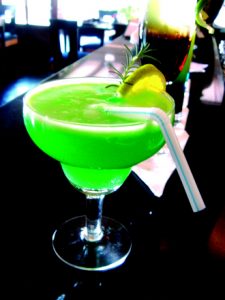The maker of a smartphone breathalyzer violated federal advertising rules when it promised that its products offered “government lab-grade testing” to measure consumers’ blood-alcohol concentration.
The CEO of the company agreed to settle with the Federal Trade Commission, which alleged the firm didn’t have the proper scientific evidence to back up the claims made in its advertising.
Startup funds for the technology venture were generated as a result of the CEO’s appearance on the reality show Shark Tank, a show on ABC that seeks funding from venture capital “sharks.” The CEO drummed up $2 million in funds plus a large group of executives as part of the show. The products in question are pocket-sized devices that connect to users’ phones via the headphone jack. The promise of the products is that they will give users an indication of their blood-alcohol level – presumably before they get behind the wheel of a car or engage in some other activity.
It’s an idea that’s actually quite cutting edge – and would be great if it delivered as promised. The hope would be that it could help substantially curb the number of DUI arrests and DUI accidents and injuries that result from impaired drivers. Human beings have a difficult time gauging their own impairment while impaired. That’s why so many people who are clearly drunk will absolutely insist they are “fine to drive.” Most people who say this usually aren’t trying to be openly deceptive. Rather, they simply don’t feel as if they have lost control of their normal faculties. A breathalyzer test (along with other roadside sobriety tests) say otherwise.
Because there is no officer at the door of every bar doling out breathalyzer measurements and field sobriety tests, there is demand on the market for a product like this. However, the problem is when it fails to deliver as promised, people who are actually impaired may be given a false sense of security that they are not.
There is no media report as of this writing indicating that injury resulted from a misguided reliance on the breathalyzer, though our Boston drunk driving injury lawyers wouldn’t put it outside the realm of possibility.
According to Legal Newsline, the two products in question cost $49 and $99, respectively. The company even teamed up with Uber to help users call for a ride in case their breath-alcohol concentration was deemed too high. Unfortunately, per an investigation by FTC regulators, the results of that BAC reading were often off – by a fairly substantial margin. The FTC reported that the products’ results were sometimes lower than someone’s actual BAC, and that the readings could be impacted by the surrounding temperature and humidity.
The company stopped selling the breathalyzer products in 2015, just before the FTC launched its inquiry. However, the product is currently being sold on Amazon (with poor reviews) and similar products remain on the market as well.
As part of the settlement with the FTC, the company has agreed to offer a full refund to all users who request it. It is believed the company sold more than $5 million worth of the product. The CEO says the company is now working with a different manufacturer to help ensure the product quality matches the public promises.
If you or someone you love has been injured a Boston drunk driving accident, call for a free and confidential appointment at (617) 777-7777.
Additional Resources:
Breathometer ordered to refund purchases of its breathalyzers as part of FTC settlement, Jan. 23, 2017, By Ryan Lawler, Tech Crunch
More Blog Entries:
New App Tells Users if They Are Drunk Based Upon Walking, Feb. 14, 2017, Boston Drunk Driving Injury Lawyer Blog
 Boston Drunk Driving Accident Lawyer Blog
Boston Drunk Driving Accident Lawyer Blog

